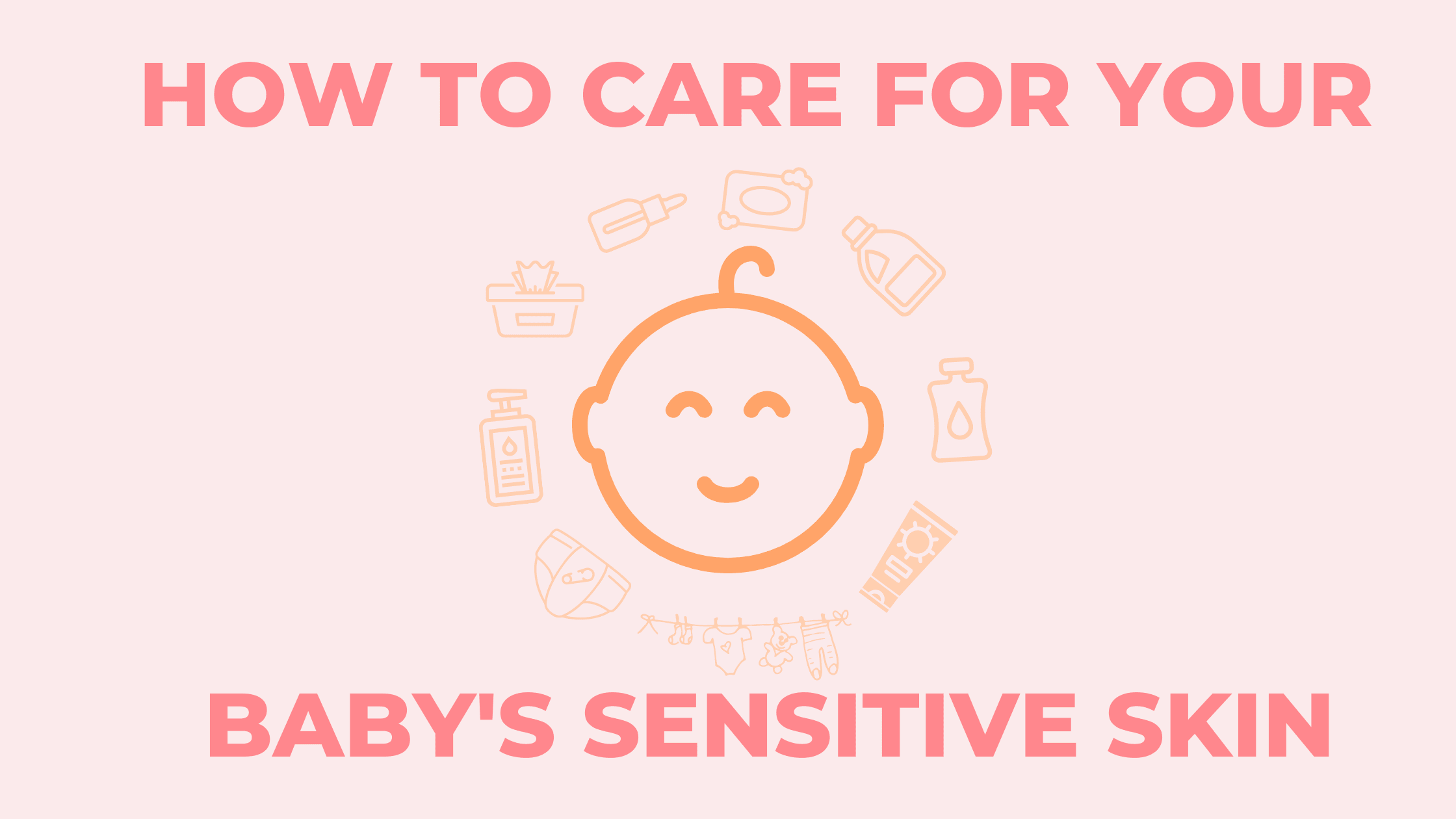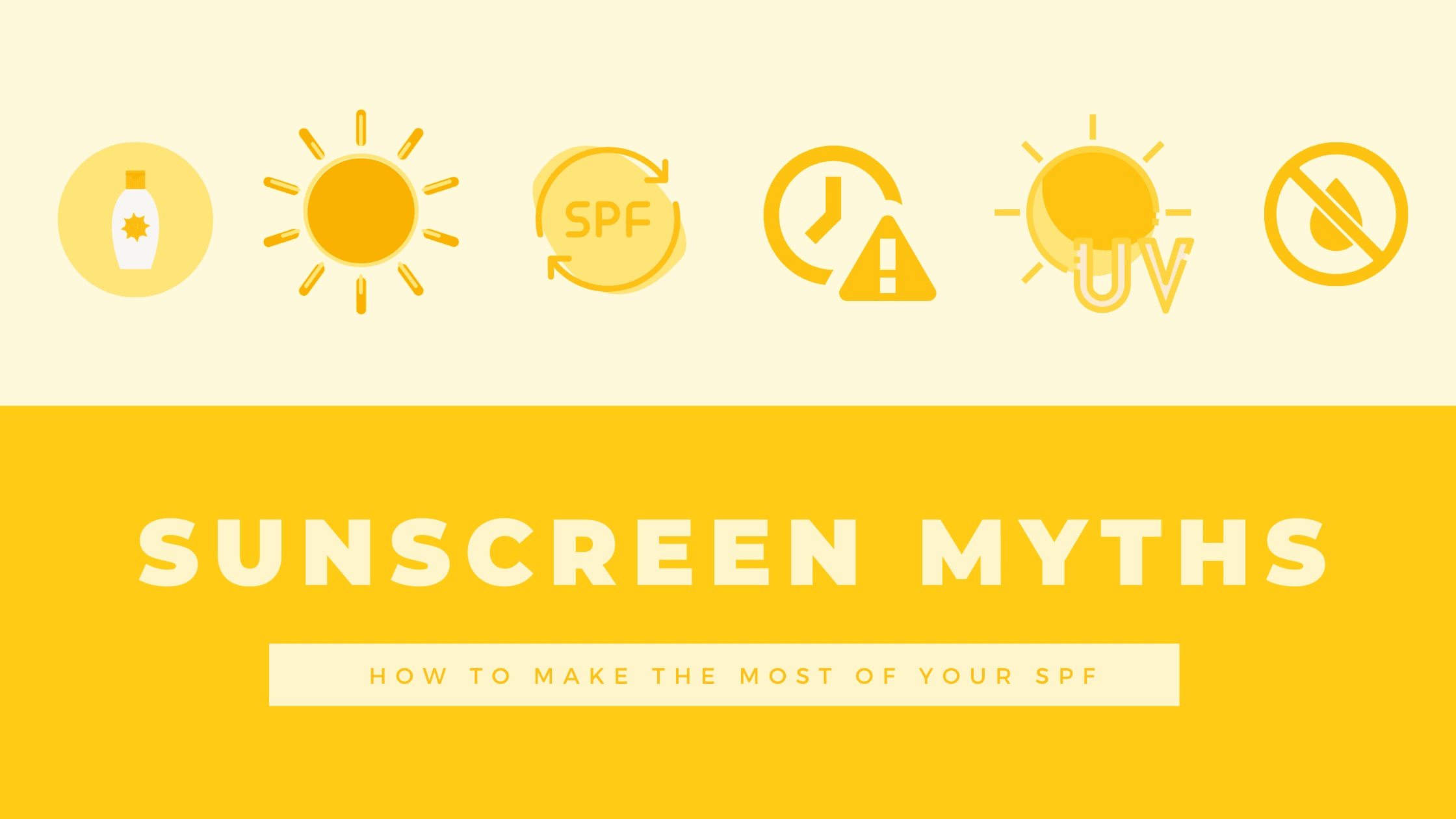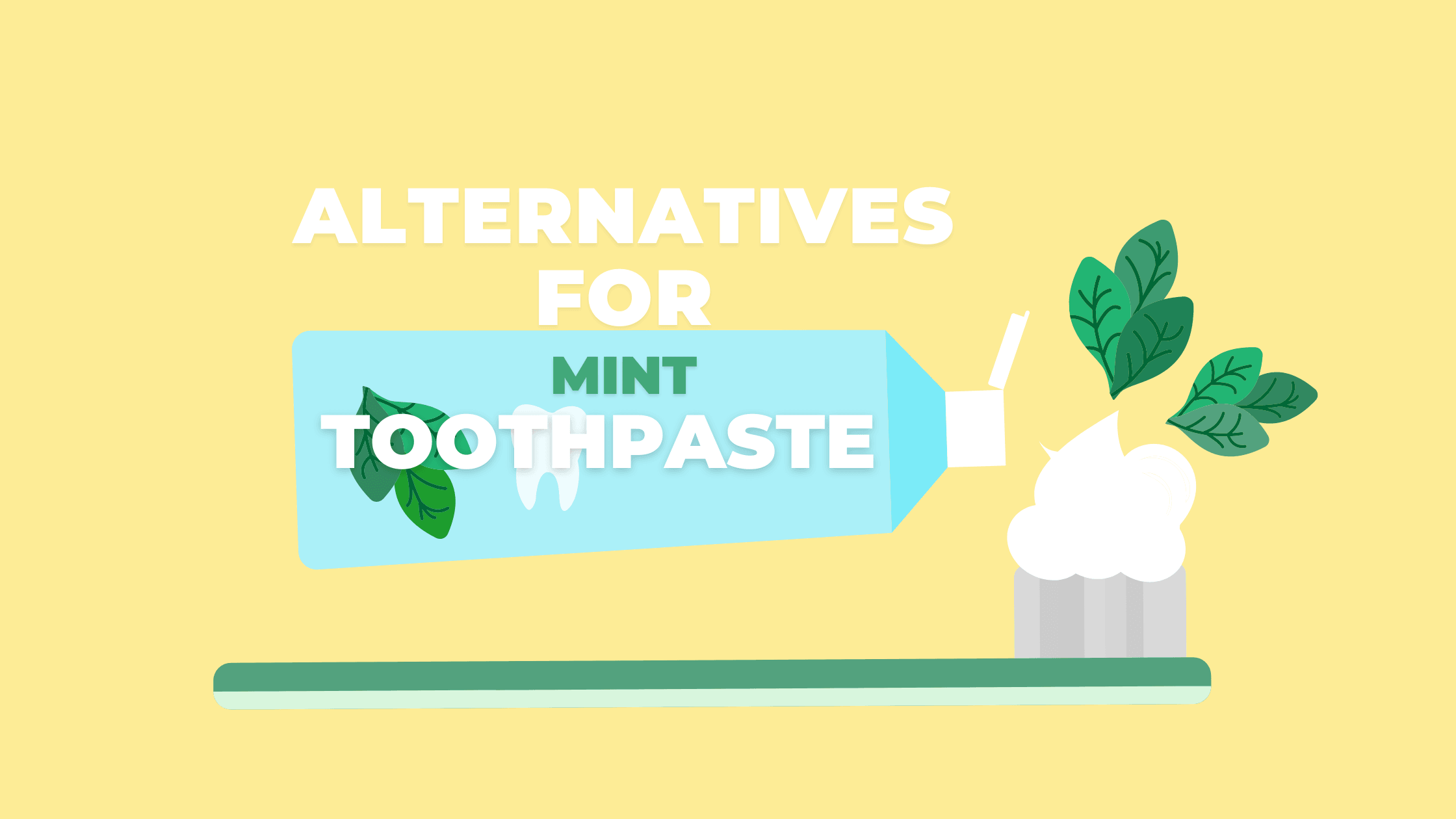
How to Care for Your Baby’s Sensitive Skin
As you get older and the wrinkles start to set in, you may start to long for “baby soft” skin, but babies’ skin isn’t always as flawless as it’s made out to be. In fact, a lot of the time, it’s far from soft and smooth, and most babies suffer from excessive dryness, eczema, and/or a medley of rashes.
Baby skin is not fully developed, and is more prone to irritation than an adult’s, so proper care is essential for a happy, healthy baby. Keep reading to learn more about baby skin conditions, tips for cleaning and bathing your baby, and the best products for babies with sensitive skin.
Common Skin Conditions in Babies
When babies are newborns, their skin is still developing, the outer layer of skin is about 30% thinner than that of adults, and they haven’t built up a substantial skin barrier yet. These factors add up to make babies’ skin much more vulnerable to sensitivities. The lack of a strong skin barrier allows moisture to escape the skin’s surface easily, and outer environmental and chemical stressors like heat, sunlight, and various skincare ingredients can do much more harm. As a result, dryness, skin conditions, rashes and irritation are all prevalent during infancy.
The following skin conditions are some of the most common amongst babies:
Milia is a skin condition that appears as tiny white bumps around the nose, cheeks, upper body, and sometimes in the mouth. It’s a result of dead skin getting trapped in the surface glands (sebaceous glands) of the skin, and in babies it’s likely due to these glands being underdeveloped. It checks out since about 40% of newborns have milia, though it's harmless and typically doesn’t last long.
Diaper rash occurs in and around the diaper area since the moist, covered environment is the ideal breeding ground for bacteria. They can result from waste, a too tight diaper, a yeast infection, irritants in changing products, or, in more serious cases, a bacterial infection like staph. Rashes should go away after a few days, but if they continue and progress from a pink rash to red and/or bleeding skin, then see a doctor or pediatrician as it may be a more severe infection.
Miliaria or Heat rash will typically turn up in the folds of your baby’s skin or in places where tight clothing comes into contact with the skin since the sweat glands are blocked and heat is trapped in. It appears as clusters of red bumps and blisters that may sting, and it usually goes away on its own if you let the skin breath.
Contact dermatitis is an allergic reaction from a foreign substance such as a chemical ingredient, plant extract, fibre, food, saliva, or metal that comes into contact with the skin. It causes the skin to blister, itch, and swell temporarily. Contact dermatitis can be avoided by narrowing down what substances result in a reaction by having an allergy patch test done by a dermatologist or allergist. Performing a self patch test for any new body care products you introduce to your baby will also help target what not to use. Once you find out what substances are allergy triggers, find replacements that are better suited to your baby’s sensitive skin.
Eczema is a chronic skin condition that is characterized by flare ups of dry, red, and itchy skin. About 10% of children, and 20% of infants, specifically, suffer from eczema. There is no cure for eczema, so the only treatment is to use hydrating and soothing skin care products, and to avoid triggers like dry air, pollen, and harsh soaps and detergents.
Your baby’s skin will strengthen over time, and most skin conditions clear up after a few weeks. If you are ever concerned about irritation or rashes that linger for months, then contact your baby’s pediatrician or a dermatologist who can help diagnose and treat any long term skin concerns.
Acne doesn’t always set in during puberty. Some babies arrive early to the acne party and break out around the nose and cheeks a few weeks after birth. There’s no definitive reason that babies develop acne, but it could be due to hormones passed down from the mother.
It’ll likely go away on its own so don’t pull out the acne washes and spot treatments just yet – save those for their teens. However, if acne lingers or develops on your baby after 6 weeks, then see a doctor to narrow down the problem.
Common triggers for skin irritation
In general, these are the main sources of skin inflammation and irritation that should be avoided or handled with care:
- Pressure
- Friction
- Heat
- Cold
- Food allergies
- Fabric allergies
- Harsh soaps and detergents
- Fragrance and dyes
Tips for bath time
The first step in caring for your baby’s skin is bath time. While a bath can be a great way for grown ups to unwind, it can be the opposite for babies. With babies’ underdeveloped skin, hot baths are dry skin waiting to happen, so use these tips to help guide you and your baby to healthy skin.
How often should you bathe your baby?
Your babies don’t need to bathe as much as your preteens. Over-cleansing can dry out your baby’s skin, so stick to 2-3 baths per week, and use a damp washcloth in between baths to spot clean their face, diaper area, and between skin folds. Pay extra close attention to these folds; That cute little baby fat can be a breeding ground for bacteria because of the high humidity from skin-to-skin contact.
How hot should a baby's bath water be?
Hot water can not only scald a baby’s skin, but too much exposure to heat can dry out the skin. Keep your baby’s bathwater at right around 100 degrees fahrenheit so that it is warm but not too hot.
Use Fewer Products
Less is more when it comes to your baby’s bath and body care products. All you need is a gentle wash for their hair and body, a hydrating lotion and/or oil, and a mineral sunscreen for babies over 6 months.
Cleanser for Babies with Sensitive Skin
A sudsy lather isn’t necessary to get clean, and those very soapy bubbles are likely from harsh detergents like sodium lauryl sulfate (SLS) which commonly lead to irritation.
Just like with the amount of products you use, when it comes to ingredients, less is more. Some baby washes cram in essential oils, fragrances, and dyes for aesthetic appeal, but these essential oils have little actual benefit, and can do more harm than good. Use a sulfate, fragrance, and essential oil free body wash on your baby. It won't have the stereotypical baby fresh scent, but your baby's skin will sing its praises
If your baby is one of the estimated 20% of infants with eczema, look for a wash with oats which have been shown to help soothe the flakey, itchy skin that comes with eczema.
Best Shampoo for Babies
Choosing a gentle, irritant free shampoo is the key to keeping your baby’s peach fuzz soft and healthy without irritating their scalp. Avoid baby shampoos with ingredients like SLS, dyes, essential oils, and fragrance because they can cause irritation on the scalp, dry out the hair, and make that soft peach fuzz hair more akin to a pineapple skin.
Moisturizing
Once you’ve dried off your little one, restore some of the moisture that was lost during cleansing with a thin layer of gentle, fragrance free body lotion.
For extra dry spots or eczema patches, you can use a drop of emu oil for extra hydration, and inflammation reduction. Traditional baby oil (which is made up of mineral oil and fragrance) is typically safe for babies, but if your baby is sensitive to fragrance, it could cause irritation. Emu oil is 100% pure and fragrance free so it’s a safe choice for all babies.
Sun Protection for Babies with Sensitive Skin
According to the American Academy of Dermatology, recurring sunburns during childhood puts you at a much greater risk of developing skin cancer later in life. Set your baby up for a lifetime of healthy skin by introducing them to proper sun protection techniques and products from a young age.
Sunscreen is not recommended for babies under six months, so do your best to keep your newborn out of the sun and in the shade. When you are in direct sunlight, cover up their skin as much as possible with protective clothing like lightweight long sleeve shirts, pants, and sunhats.
For babies, six months or older, use a mineral sunscreen for sensitive skin with an SPF of at least 30 and reapply it every 2 hours or after going in the water. The titanium dioxide and zinc oxide in mineral sunscreen block both UVA and UVB rays and are less likely than chemical sunscreens to cause irritation on babies’ sensitive skin. You should still focus on keeping your baby out of the sun as much as possible, but when you do step into the sun, keep SPF on hand.
Baby Products to Avoid
There are some products that should be avoided altogether
Baby Powder - The American Academy of Pediatrics recommends against using any baby powder. Not only will it soak up natural oils in a baby’s skin which can lead to dryness, but talcum powder can also cause lung problems if inhaled and has recently been linked to ovarian cancer.
Bleach - Bleach is a common irritant for sensitive skin, so try to avoid using it on your baby’s clothing and bedding. If you really need to bleach a stain, make sure to run the item through a wash cycle one more time to remove excess bleach.
Bubble Bath - Over-cleansing your baby’s skin is the easiest way to dry out the skin. Bubble baths, bubble bars, and bath bombs consist of soap, dyes, and fragrance which are some of the most drying ingredients, especially if you’re going to have your baby soaking in them for the entirety of their bath. If you want to make bath time more fun for your little one, try bath toys instead.
There’s more to caring for your baby’s sensitive skin than just the skin, hair, and body care products you do and don’t use. Every environmental factor surrounding your baby can cause discomfort and irritation.
Baby Clothing for Sensitive Skin
As cute as baby clothes can be, the main priority is comfort and protection for your baby, not putting on a baby fashion show. If your thick adult skin gets itchy from a wool sweater, then imagine how it feels to a soft-skinned baby.
To keep your baby’s skin happy and healthy, avoid rough, itchy, and/or synthetic fabrics and stick to natural, breathable fabrics like cotton, silk, and linen; cotton is always the best option. Cut out itchy tags, stay away from styles with thick seams, and choose loose fitting silhouettes over tight ones.
Throw new baby clothes in the wash before wear to soften the fabric and to remove any chemical treating that may have been done to the clothes, but make sure to choose your laundry products carefully.
Laundry detergent for sensitive skin babies
The products you use to launder your baby’s clothes can rub off onto their skin and trigger inflammation or flare-ups. When it comes time to wash your baby’s clothes, sheets, and blankets, use a laundry detergent that’s fragrance and dye free which will often be specifically labeled for sensitive skin. The same goes for your dryer sheets and fabric softener.
Non-irritating diapers and baby wipes
All babies will likely deal with a slew of diaper rashes prior to the celebratory day that they are finally potty trained. Diaper rashes are a form of contact dermatitis that can result from not enough diaper changes, a too tight diaper, an irritating diaper or other changing product, or a bacterial/yeast infection. Regardless, babies with sensitive skin are more prone to diaper rashes.
Keep your baby’s diaper fresh, let their bottom air dry between changes, and be sure to choose diaper changing products that are gentle for sensitive skin.
Baby wipes often contain fragrance and plant extracts which are common irritants. Just because plant extracts/botanicals are “natural” does not mean they are what’s best for your baby’s skin, especially sensitive skin. Citrus, eucalyptus, and lavender are commonly used in baby wipes, and while the scents may be marketed as soothing, it can be the opposite for your little one’s sensitive skin.
Use baby wipes and diapers that are free of plant extracts and fragrance, or use a cloth diaper and a damp, clean washcloth, which you can rewash and reuse.
Even on tiny little babies, the skin is the largest organ, so caring for it thoroughly from a young age will set your child up for a lifetime of the healthiest skin possible.



Leave a comment
This site is protected by hCaptcha and the hCaptcha Privacy Policy and Terms of Service apply.